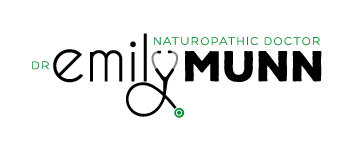Why are you so tired?
Here are 6 reasons you may be tired:
1. You Lack Sleep Quantity and Quality.
According to the National Sleep Foundation adults between ages 26-64 need 7-9 hours of sleep per night (1). If you are not allowing enough time to recharge your battery, you may feel tired the next day. This sounds simple, but a commonly missed reason as to why my patients feel tired. After we take inventory of when bedtime is and wake time, it’s pretty obvious a lot of us are not getting enough sleep! .
Check with your naturopathic doctor which medications could be robbing you of precious R.E.M. sleep (restorative sleep) and ask about natural sleep treatment options including acupuncture.
2. You have Iron Deficiency Anemia.
Iron deficiency anemia should not be overlooked, especially in women who complain of fatigue. Here are signs that iron deficiency anemia may be why you feel so tired:
Tiredness upon waking
Shortness of breath
Dizziness
Heavy menstruation
Short menstrual cycles -between periods
Brittle nails
Hair loss
Cold hands and feet
Pale facial complexion
Pale conjunctiva (inside lining of your eyelids)
Postpartum
Your red blood cells use iron to transport oxygen around your body. Iron is also needed in a number of other cellular functions such as proper thyroid function. Often caught in pregnancy as blood volume demand increases, iron deficiency anemia should not go undetected as a possible cause of general fatigue in all age groups. Simple blood tests like a complete blood count (CBC) can uncover overt iron deficiency anemia and other forms of anemia like those caused by vitamin deficiencies. Testing ferritin (iron reserves) is also valuable especially in menstruating women. See your local ND for some lab work.
3. You have Adrenal Insufficiency(fatigue).
Adrenal dysfunction is a core reason you may feel fatigued despite being dismissed often by the conventional medical system. The health of your adrenal glands effect your whole endocrine system. The balance of your stress hormones such as dehydroepiandrosterone (DHEA) and cortisol is crucial for women and men's energy. Talk to your ND about assessing your adrenal function. Adrenal index salivary testing can also be helpful.
4. You have Low Thyroid Function (hypothyroidism).
The health of your thyroid gland is very important to your overall energy and well being as it is second only to your brain for regulating metabolic and endocrine functions. There is no doubt some controversy when it comes to defining medical terms of thyroid disease and its laboratory values. Generally, hypothyroidism means low thyroid function.
A sluggish thyroid can make you feel downright awful:
Fatigue, sometime extreme
Constipation
Dry hair and skin
Hair loss
Cold hands and feet
Headaches
Irregular periods
Infertility
Difficulty losing weight
The National Academy of Clinical Biochemistry’s laboratory guidelines say that >95% of rigorously screened normal euthyroid volunteers have serum TSH values between 0.4 and 2.5 mIU/L (2). Yet often I have patients tell me that they have been told their thyroid is “normal” with TSH values well above 2.5 mIU/L. If your TSH is about 2.5 mIU/L, you may have subclinical hypothyroidism and warrant treatment. While TSH (thyroid stimulating hormone) is a good screening test for thyroid function, it sometimes does not tell us the whole story. A full thyroid assessment (TSH, thyroid hormones triiodothyronine (T3) and thyroxine (T4) and thyroid antibodies) allows your entire thyroid function to be revealed. Since autoimmune thyroid disease known as Hashimoto's thyroiditis is the leading cause of hypothyroidism in women of reproductive age, checking for thyroid antibodies is important. Naturopathic doctors are excellent at detecting and treating thyroid conditions effectively and safely.
5. You are Not Exercising.
The irony is, your lack of movement can be making you tired! I get it, you are tired so how can you exercise? Exercise has so many benefits. For a nice visual summary of the importance of exercise, watch this video. Bottom line - exercise improves circulation allowing all your cells and organ systems to function better. It increases skeletal muscle while improving your hormone and metabolic health. It might seem counterintuitive, but you cannot sit back and expect your energy to simply increase. Human beings are designed to move. Get some form of movement in most days of the week and feel your energy improve!
6. You are on a Sugar Roller Coaster.
What you fuel your body with has a lot to do with the energy it provides you in return. Fill it with processed and refined foods and your body responds by running all systems at full for a short time before they all come crashing down. Your body then craves more quick fuel because it is in meltdown mode about to push the panic button - you then reach for something loaded with sugar and once again you're off - round two of this crazy ride! This up and down and up and down process is known as the sugar roller coaster or hyper and hypoglycemia (high and low blood sugar). It is time to get off the sugar roller coaster! Some people are more sensitive to their blood sugar levels like women with PCOS (polycystic ovarian syndrome) and need to be extra diligent with the amount, frequency, and quality of their food. Naturopathic doctors are experts in nutrition and can help you find your own unique healthy diet plan :)
Resources:
National Sleep Foundation -www.thensf.org

